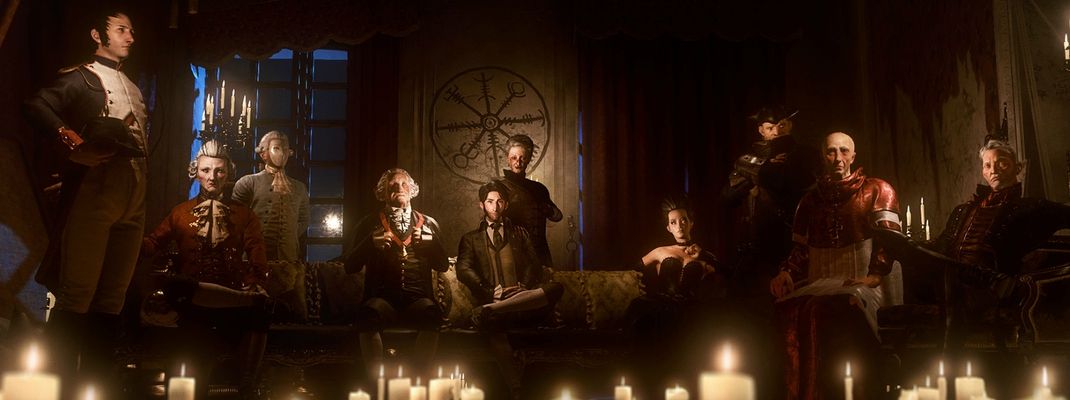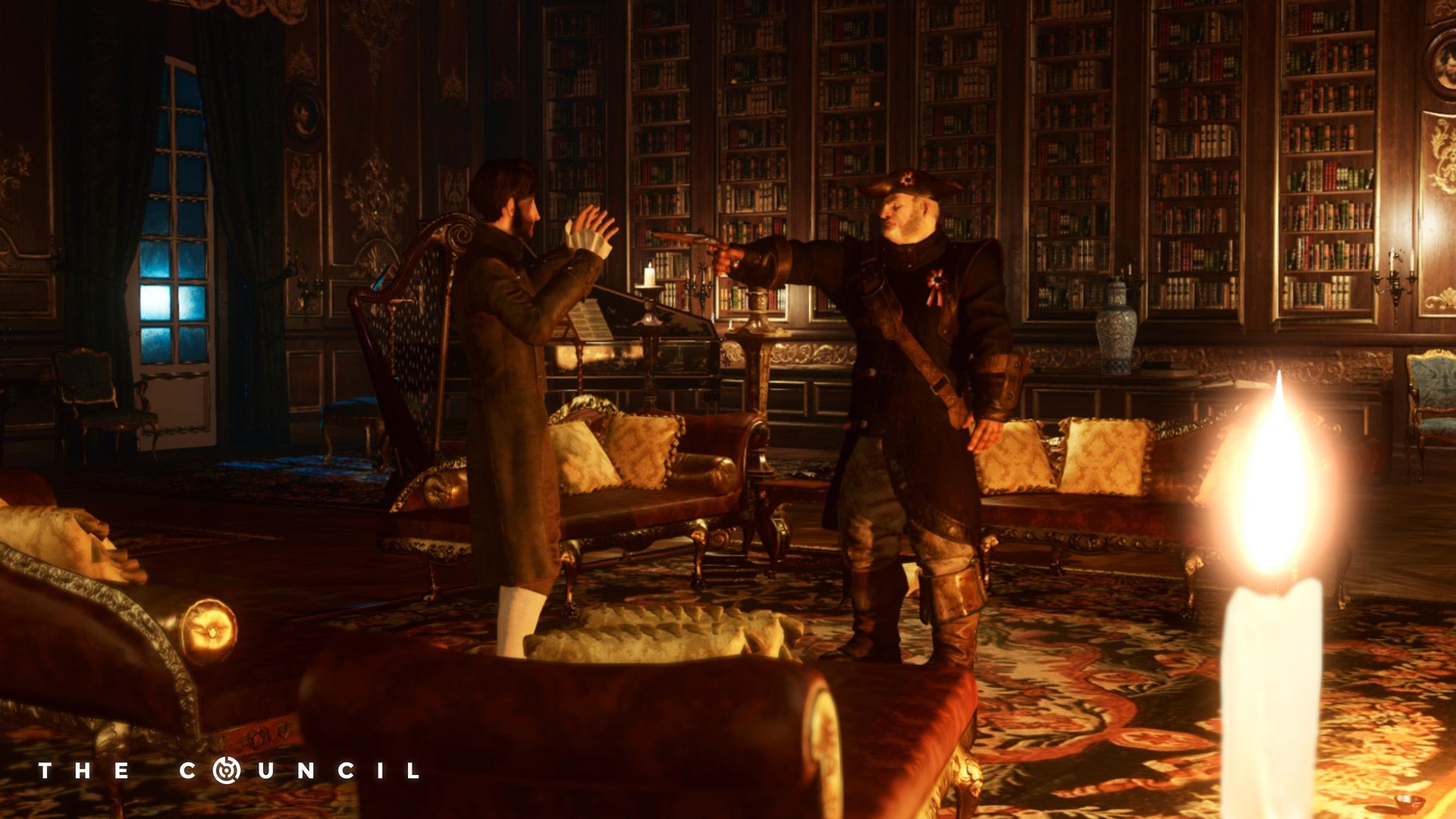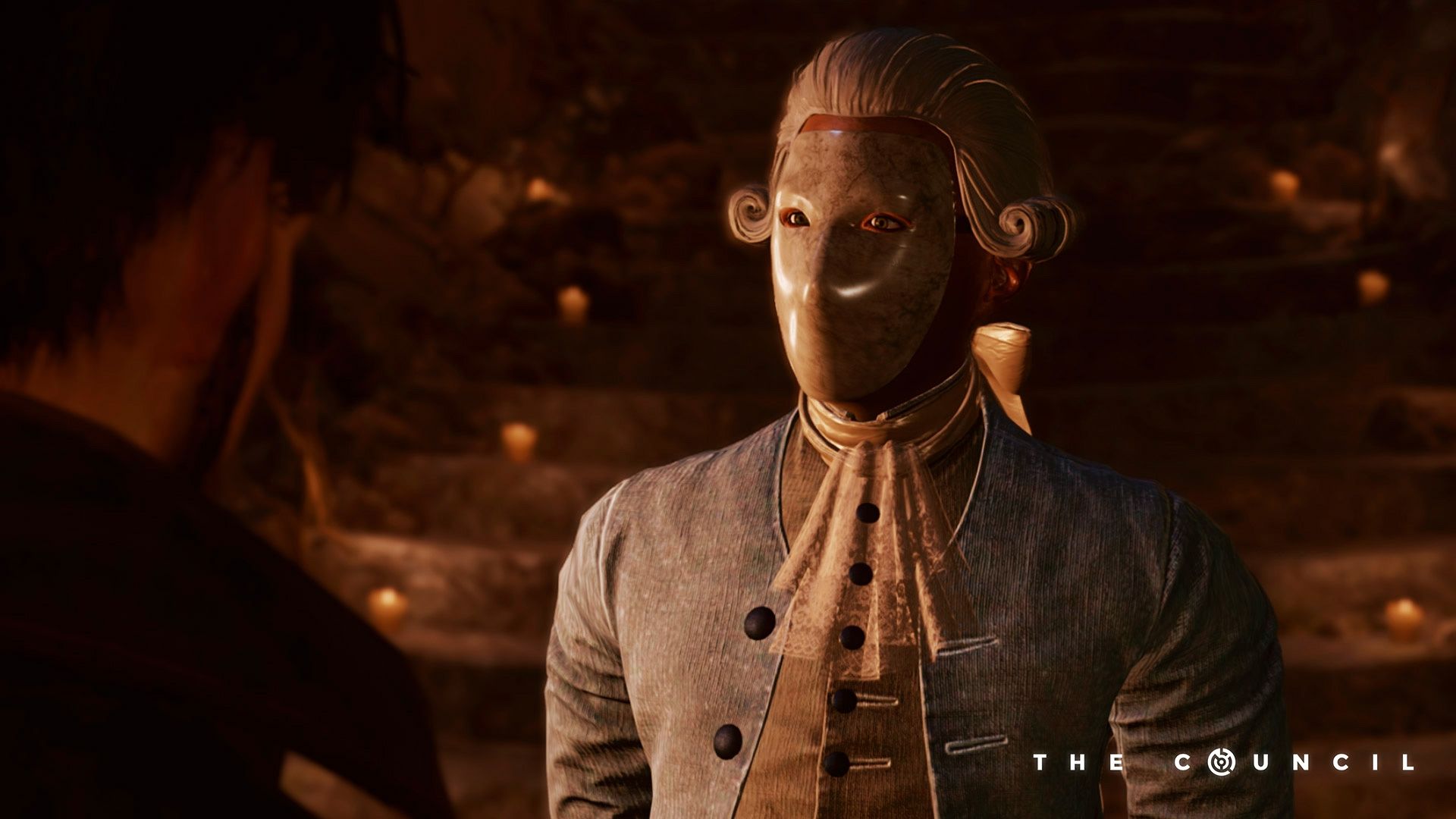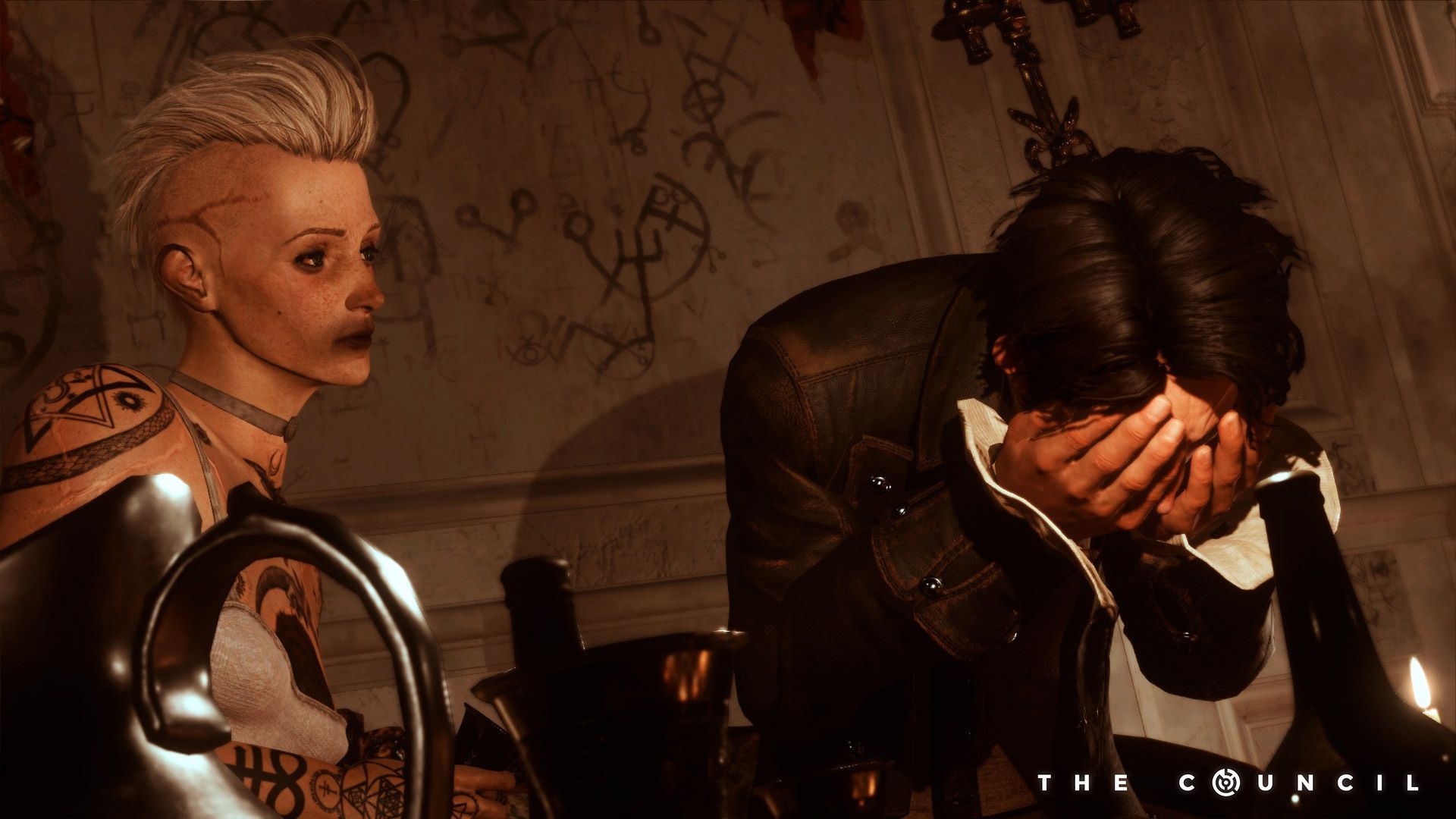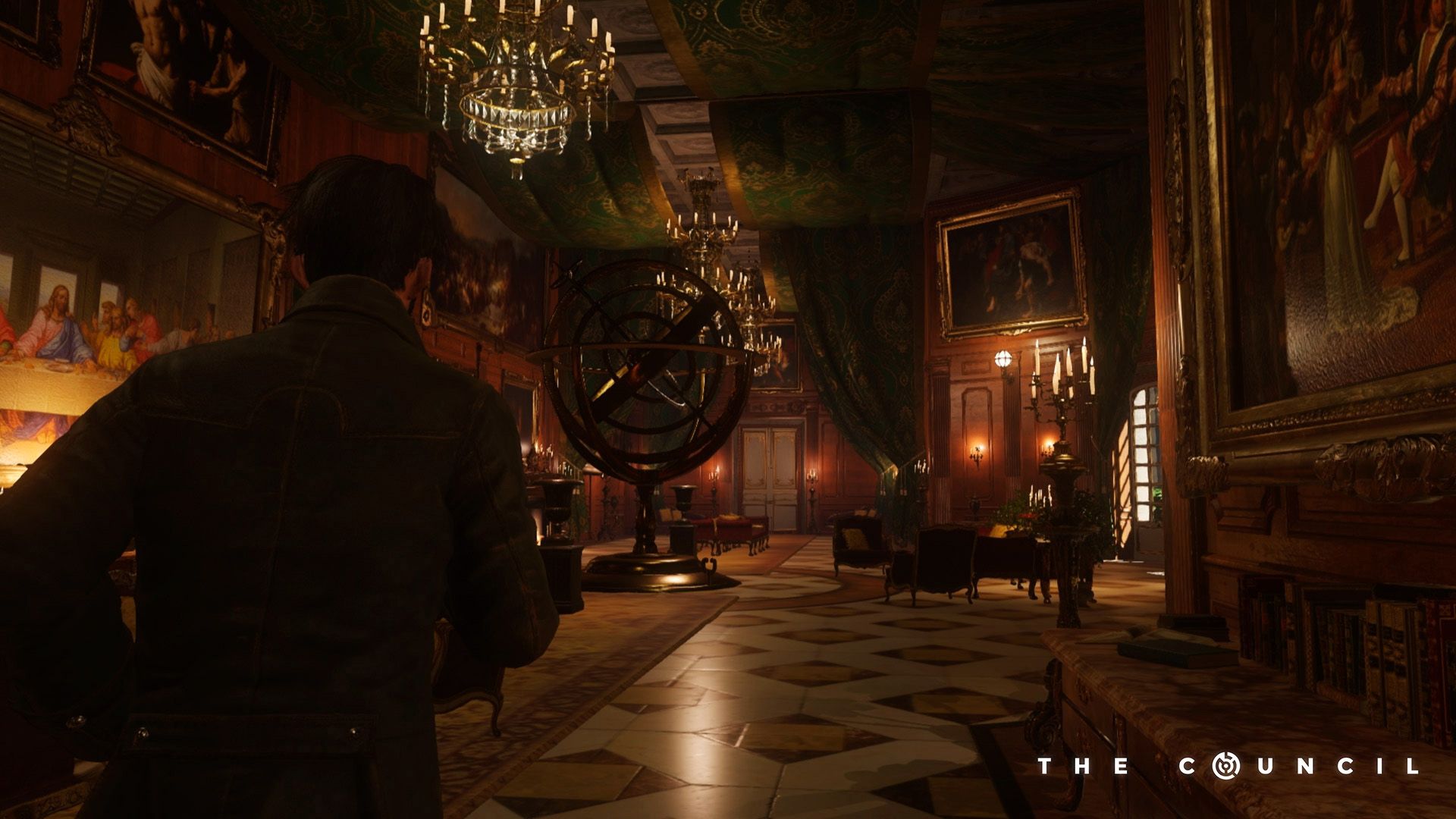It’s not uncommon to hear about a new episodic adventure title developed outside of Telltale Games’ sphere of influence. The Tales from the Borderlands and The Walking Dead developer became a powerhouse force for episodic gaming -- not to mention a household name -- helping to establish its credibility with critics and turning it into a much-loved experience for many people. Now, several studios are reimagining Telltale’s classic formula and elevating episodic gaming to new heights. It’s exactly what developer Big Bad Wolf achieves with its latest outing, The Council. Big Bad retains different aspects of Telltale’s tried-and-tested formula for The Council’s foundation, but then the studio puts its own unique signature on episodic gaming. From Episode 1: The Mad Ones’ fantastic opening to its exciting conclusion, it’s clear that The Council is not a simple case that imitation is the sincerest form of flattery. No, The Mad Ones is an early indication that Big Bad has tapped into something special, which could allow The Council to set a new precedent for episodic gaming if all five episodes rival -- or surpass -- each other in the same high quality as its opener.
The Council takes players to a private island off the shores of England in 1793 and centers on the disappearance of Sarah Faustine de Richet, who leads a secret society known as the Golden Order. Louis de Richet, her son and heir to the Golden Order, is invited to the island by Lord William Mortimer to help in the search for his missing mother. Like many episodic openers, The Mad Ones is a slow burner for The Council’s story. With that said, however, Big Bad effectively builds momentum and interest as progression is made in The Mad Ones. The opener is steeped in mysteries, retaining Sarah’s disappearance as the focal point of The Council’s story arc. Big Bad’s writing is excellent in parts, although questionable on more than one occasion. Sometimes Louis can switch from his eighteenth-century dialect to a modern-day one, causing confusion for both players and The Council’s setting. It’s an issue that extends to the voice-over work, too, which can occasionally be awkward and bland. Unlike Telltale, who has mastered the art of exceptional writing and bringing first-rate voice-acting performances in its titles, Big Bad needs to refine these important aspects going forward in subsequent episodes.
The Council single-handedly outperforms most point-and-click adventure titles on the market due to its RPG mechanics, which makes for a much more varied experience depending on players’ choices. From the opening moments, players are presented with a difficult choice of selecting one of three classes for Louis: Diplomat, Occultist or Detective. Drawing inspiration from politics, the Diplomat transforms Louis into a bona fide silver-tongued wordsmith; Occultist channels Louis’ expertise in science and the arts to help him manipulate others; and finally, Detective offers the ability to highlight small details that could be overlooked in Louis’ investigation. None of these classes are an illusion of choice. The minute that players select one and begin their adventure is the moment when they’ll realize the full brunt of their choice.
Each class possesses strengths and weaknesses, but different interactions will be locked without a certain set of skills. The two non-selected classes can be unlocked at a different stage in The Council, but they will be more expensive as a result. Class selection adds immediate replay value to The Mad Ones, considering players will want to explore all of the options that were previously unavailable due to their chosen skill set. Gameplay is not defined by the class system alone, but it’s combined with other RPG elements, such as Louis’ skill tree, to dramatically enhance the overall experience of The Council. As players progress in The Mad Ones and complete different objectives, they are able to use the skill tree to improve upon individual abilities in each class.
Big Bad’s meticulously detailed and well-organized menu layout for The Council is easy to navigate and makes it an important point of reference throughout The Mad Ones. For example, the ‘Talents’ section highlights mini-objectives to complete over the course of The Council, from character exchanges to different tasks, as a way to develop Louis’ skills. It keeps the experience refreshing, challenging players to find the best method of completing different Talents. Players are provided with effort points on the bottom left-hand corner of their screen, requiring its use each time they take advantage of a certain skill at their disposal. It does make the player conscious of the price they must pay when they utilize a skill. At the same time, though, players can find items on the island that either replenish Louis’ effort points or make their next skill use free. It’s that level of immersion that allows The Mad Ones to create an engaging, enjoyable experience outside of The Council’s story.
The Mad Ones draws on the strength of The Council’s rich, colorful cast of characters, both originally conceived and actual historical figures. Whether it’s an interaction with Napoléon Bonaparte or George Washington, each character has their own agenda and makes it a priority to learn about their reasons for being on the island. There’s a real purpose to interact with these characters, straying away from the insipid dialogue exchanges that occur in episodic titles. With this cast of characters, players will come across The Council’s core mechanic: its Social Influence system, which allows Louis to identify immunities and exploit vulnerabilities in characters. It’s especially effective when it’s coupled with Confrontation, a verbal head-to-head showdown between Louis and a specific character. It’s a nice twist on a typical boss battle, with few errors allowed and immunities and vulnerabilities playing a factor in receiving positive or negative results. Players need to apply themselves to discover what the best course of action is to take, but what makes the mechanic successful is that it lasts up to the final stage of a Confrontation. During the final step, players have to reply with the right option to win the Confrontation or keep trying until they select the right answer. With only so many errors to make, it can be a knife-edge experience when it comes to winning or losing a Confrontation.
The Mad Ones is an early demonstration that choices always matter in The Council. While it might seem like an obvious factor, The Council is the first time where it really changes a player’s mindset that a choice is more than simply picking an option. It also obliterates the idea that only major choices will directly impact the direction of The Council’s story. Even the smallest decisions (outside of the Social Influence mechanic) are important in The Mad Ones, coming back to affect and alter the course of the story. While other titles have potentially one important choice to make in an episode -- conveniently towards the end -- The Mad Ones has several of them throughout the story. Players can choose a certain side objective and, as a result, miss out on an alternative path for how the story unfolds. Even exploring the world is not a tedious task. In fact, there are several instances where a player might walk past an item or miss out on an important clue or information for their investigation. The slightest blip can have a lasting impact on the story, which will be exciting to see how the choices made in The Mad Ones carry over to the second episode and affect the rest of the story.
Big Bad strikes the right balance in terms of The Mad Ones’ playthrough time, which lasts anywhere between two to three hours and clearly establishes The Council’s story into context. It’s not long enough for players to feel disengaged from the story at any point, nor does the main story fall off course due to different subplots. Where Big Bad does excel past other developers is its decision to split The Mad Ones into five smaller acts, allowing progress updates to come in an even flow. At the end of each act, players are able to improve upon their established skills, level up and reflect on how their choices impacted the story. Journal pages are scattered throughout The Council’s world and provide useful upgrades to Louis when equipped. It’s at the end of an act where players can fully utilize the pages to further enhance Louis and his skills. It might not seem like a significant factor when someone considers that The Council’s story has been divided up into five separate episodes, but it proves to be a worthwhile feature in The Mad Ones and allows brief pit stops without undermining the episode’s overall pace.
The Mad Ones is an impressive presentation of The Council’s visuals. Big Bad’s distinctive art direction flourishes with The Council’s eighteenth-century setting, characters and designs, allowing players to relish in the world that they explore in The Mad Ones. It’s a pleasant experience to sit back and watch how different engagements unfold, not to mention Big Bad utilizing a feature seen in Life Is Strange and Life Is Strange: Before the Storm that allows Louis to sit down in certain locations and for players to absorb the environment around them. The Mad Ones is not always a seamless experience, though. There can be occasional drops in frame rate, hindering the smooth consistency expected in episodic gaming. Additionally, there was even a segment with Lord Mortimer where he was glitching through his chair. The soundtrack effortlessly blends into the background, combining with natural sounds to evoke an engaging, riveting ambience throughout The Mad Ones.
Closing Comments:
The Mad Ones is one of the strongest openers in episodic gaming to date. Big Bad has created a universe that is both original and captivating, leaving players to probe different characters encountered in The Mad Ones and dig deeper into The Council’s story to find clues behind Sarah’s disappearance. It’s disappointing that some notable flaws, from dialogue and voice acting to performance issues, hold back The Mad Ones’ full potential. While the negatives can -- and should -- be addressed going forward, it’s not enough to take the shine off The Council. It’s early days -- and potentially hasty to say this -- but The Mad Ones is a powerful statement that Big Bad, similar to Dontnod Entertainment with Life Is Strange, could have a serious contender for 2018’s GOTY if all five of The Council’s episodes can maintain consistency and improve on their flaws. Irrespective of the aforementioned bold claim, The Mad Ones captures the ethos of episodic gaming and brings a unique signature style that will have an immediate, lasting impression on players.

